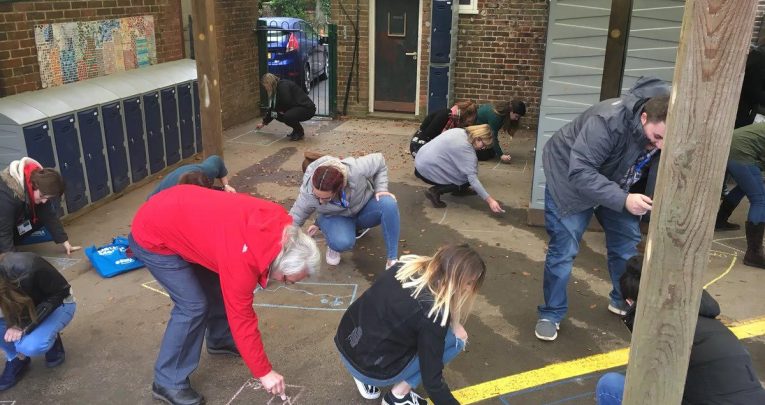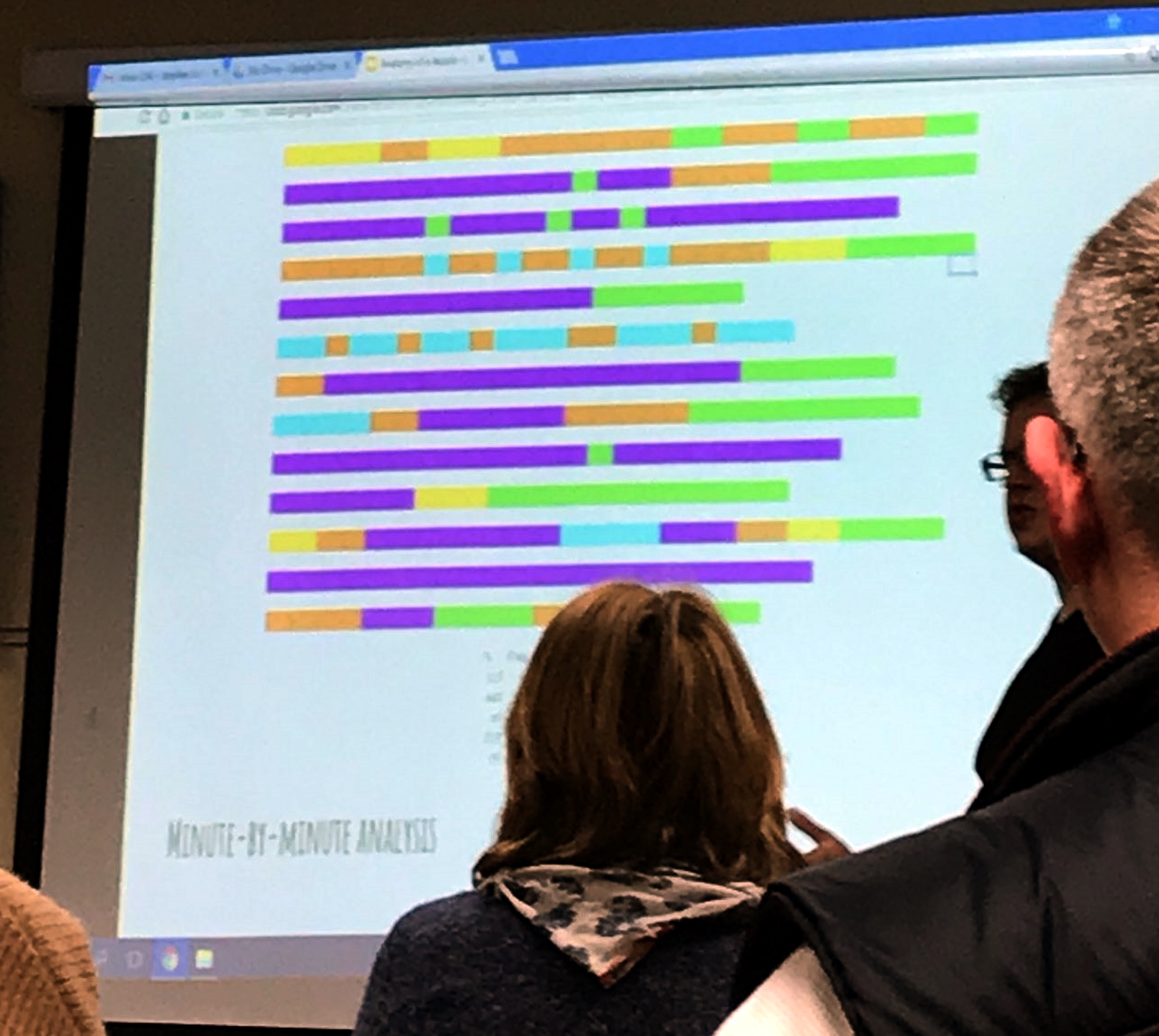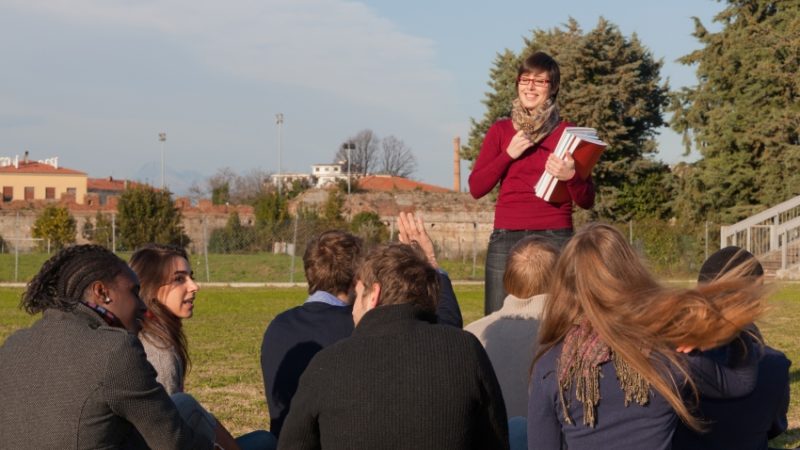Planning ‘engaging activities’ is a waste of time - and 6 more things we learnt at Southern Rocks ‘18

Did the new 'teachers for teachers' conference hit the ground running?

- by Teachwire

There’s no such thing as ‘too much coffee’; lanyards are surprisingly expensive; and not everyone is impressed by a free trip to Iceland (even when it’s the country, not the store) – but what else did the Teachwire team discover at the very first Southern Rocks ‘teachers for teachers’ conference this year?
For the uninitiated, the first ever Southern Rocks event took place at the Focus School Hindhead Campus in Surrey, part of OneSchool, early this February. Organised by headteacher Kristian Still and his deputy David Rogers – aided by the power of Twitter – this ‘teachers for teachers’ conference attracted around 200 visitors who were treated to workshops and lectures linked to four main themes – teaching, thinking, learning and assessment. Over six hours, a great deal of excellent practice was shared by over 30 passionate presenters, with around a third of these making their conference debuts (a statistic the organisers are keen to preserve).
We attended as many talks as we could; the following are just a few of our favourite takeaways:
1. Group work is vitally important – but bloody difficult to do well The Ringelmann Effect – otherwise known as ‘social loafing’ – describes the tendency for the overall productivity of a group to decrease as its size increases. It makes sense: when people think their individual contributions to a task are identifiable (and consequently, measurable), they are likely to put in more effort than if they feel that they are simply one of many, being judged collectively. In a classroom context, this means that group work – whilst invaluable for building crucial skills of communication and collaboration – needs to be extremely carefully planned and managed, and certainly not over-used. Douglas Wise’s (@DoWise) breathless sprint through this, and five other social and psychological phenomena with relevance to pedagogical practice, was absolutely fascinating, as well as eminently practical (do look up ‘the Anchoring Effect’ before you plan your next starter).
2. Planning ‘engaging activities’ is a waste of time Of course all teachers want to deliver ‘relevant and engaging’ lessons, explained Andy Lewis (@AndyLewis_RE) in his session – but you know what? If you get the content right, then that’s exactly what you’ll end up doing; and what’s more, the kids will actually be learning something useful, that they’ll be able to remember later on. The trouble with trying to come up with things for students to do that you think will get them excited, is that their enthusiasm is likely to be focused on aspects of the activity that have very little to do with the topic they’re supposed to be studying. Start instead with the key question: ‘What do we want them to know when they leave?’ and you’ll be well on your way to putting together a lesson they’ll love, even without a game of ‘hunt the potato’ (for studying the famine in Ireland) or the chance to design a magazine cover based on Paul’s Damascene conversion…
3. Plan your lesson minute by minute If someone came in to watch you teach for one hour and made a note every 60 seconds about what was happening in the classroom at that point, what would your graph look like? Stephen Lockyer (@mrlockyer) has undertaken minute-by-minute analysis of a variety of lessons at his school and noted what was going on (purple – closed-ended instruction; blue – interactive/dialogic teaching; green – task/activity; yellow – admin; orange – passive/listening). What makes the most effective lesson, and which the least? Seven minutes of admin at the start of the class (hunting out those precious Pritt Sticks or moving the furniture, for example) can quickly add up over the course of a week to a large amount of wasted time. According to Stephen, teachers should think like composers and plan their lessons ‘like a score’.

4 The All Blacks can show teachers a thing or two In his book Legacy: What the All Blacks Can Teach Us About the Business of Life, author James Kerr talks about the team’s mantra of ‘sweeping the shed’. This is the idea that no individual is bigger than the team and everyone is responsible for the smallest details, including cleaning out the locker room post-match. Leah Sharp (@leah_moo) is using this motto to create a new culture of raised expectations in her school’s Y6 pupils. Names have been removed from pegs so that all pupils are held jointly responsible for keeping the cloakroom tidy and selected children come in early to help with the day’s photocopying to allow TAs to spend more time with those who need it. By following the broken windows theory and sweating the small stuff, you can effect a whole-school culture change.
5. Sometimes it’s OK if children can’t write Twins Craig and Archie both went to university, but neither could write. One went on to do a PhD while the other dropped out. The difference? The level of support each twin was offered by his respective university. While Craig was able to use speech recognition software to great effect, the technical support given to Archie faltered, and so, inevitably, did he. The Driver Youth Trust’s (@DriverTrust) Jules Daulby told this story to illustrate a point about how we help children with SEND access the curriculum – not during 20-minute interventions in the morning, but for the other five hours of learning time during the day. While children are learning to write, she says, they still need to be able to work independently, and if this means using one of the many software utilities and resources available (Clicker 7, Microsoft Read Aloud, Immersive Reader, audio books) then so be it. “Sometimes it’s about enabling, not cure,” says Jules.
6. Inquiry maths is not ‘anti instructions’
With a name like Inquiry Maths, you can understand why Andrew Blair (@inquirymaths) is keen to dispel the myth that his dynamic approach to mathematics is in any way dismissive of knowledge.
He’s not, he says, putting students in a room with some triangles and expecting them to write Pythagoras’ Theorem questions.
Instead, he co-constructs each investigation with his class, developing their ability to probe and analyse what might at first seem an enigmatic mathematical statement. From this starting point, the students begin to shape the course of the inquiry, aided by question prompt cards and a skillful teacher who is there to guide the evolving thought process, and provide children with the knowledge they require – when they ask for it. Inspiring stuff.
7. And finally… Teachers really, really love free ice cream. Even in the rain.
The Southern Rocks ‘18 ‘teachers for teachers’ conference took place on February 3rd, at Focus School Hindhead Campus, part of OneSchool. Planning has already begun for next year’s event – watch this space!










